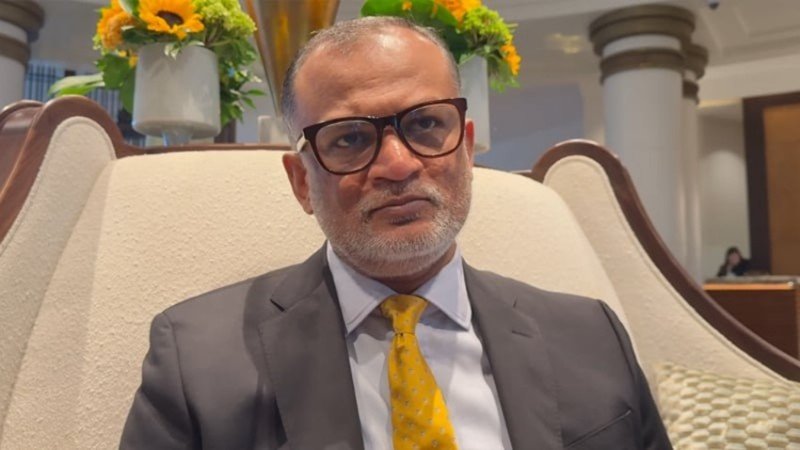Bangladesh to reveal tariff deal after US consent: Trade Adviser
Published: 02 August 2025, 4:47:29

Sheikh Bashiruddin, Trade Adviser, has said that a joint statement from both countries is expected soon following the finalization of the tariff agreement between Bangladesh and the United States.
In an exclusive interview with Bangladesh Embassy’s Press Minister Golam Mortoza, Sheikh Bashiruddin confirmed that the confidentiality agreement signed during the negotiations will be made public only after securing consent from the US government regarding information rights.
He expressed regret over the premature leak of certain details of the agreement but stressed that nothing contained therein is against Bangladesh’s national interest. “We have addressed and resolved any issues that could have been detrimental to the country through thorough discussions,” he added.
The US had earlier imposed a 37% tariff on Bangladeshi products in April 2025, which was later reduced to 35% in early July after negotiations. The tariffs are seen as a significant threat to Bangladesh’s export sector, particularly the ready-made garment industry.
Bangladesh has been engaged in multiple rounds of talks with the US Trade Representatives (USTR) in Washington to reduce the tariff rate. As part of the ongoing cooperation, Bangladesh recently placed an order for 25 Boeing aircraft and approved the import of 220,000 tons of wheat from the US, moves that could facilitate smoother trade relations.
Sheikh Bashiruddin emphasized the importance of the confidentiality agreement, noting that such non-disclosure agreements are standard practice internationally and locally to protect sensitive negotiations and national interests.
He added, “Until the agreement is finalized, confidentiality is essential to prevent any external interference or claims that could disrupt the process.”
The trade adviser also warned that any agreement that compromises Bangladesh’s economic strength or national interests would not be acceptable. “Sacrificing our national interests would only weaken our capacity to benefit from trade deals in the short or long term,” he concluded.





